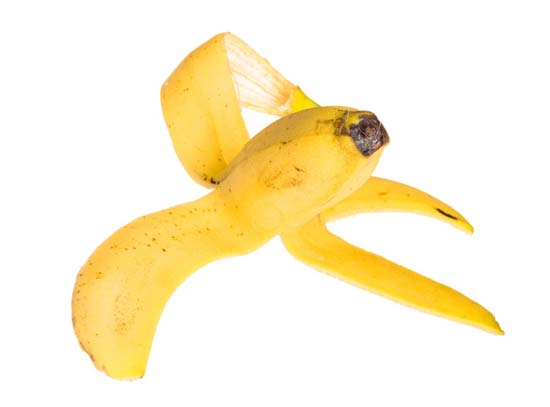The unexpected effects of banana peels on the environment
Brazilian scientists have discovered a powerful assistant in the fight against contaminated water, which is a banana peel that filters out metallic impurities in the water.
The scientists carried out experiments to release ground banana peels and dried them into water tanks with positive copper and lead ions, then stirred them. A few minutes later, check again, the metal level in the water is lower than the first stage of the experiment. Thus, it can be concluded that banana peels absorb metal.

Chemical researcher Gustavo Castro at the Brazilian Biological Sciences Research Institute said banana peels have a higher ability to separate toxins than similar materials made from chemical reactions such as silicon and aluminum oxide. , and cellulose.
In the process of finding ways to remove metal in the water without affecting the environment, many research groups have experimented with pineapple, coconut fiber, apple shell and many other ingredients. Castro and his colleagues were the first to experiment with banana peels, which contain proteins that can bind to metals.
Heavy metals such as copper and lead are common pollutants in agricultural and industrial wastewater. Even with very low concentrations in drinking water, these metals can adversely affect human health. The concern is that these metals are difficult to detect if in low concentrations.
The study shows that using banana peels is still effective even when the water has a high pH, which means that the technique can also be used in industrial wastewater treatment. Especially, after using 10 times for testing, banana peel is still capable of absorbing metal.
According to the US Environmental Protection Agency, the maximum amount of lead allowed in drinking water is 15 parts per billion, the level that can be conceded with many types of filtration equipment. However, in this study, banana peels increased the sedimentation level of copper and lead by 20%, making these metals more susceptible to detection, even with simple tools.
The findings from this study by Brazilian scientists provide new hope for developed countries, where the quality of drinking water is still low and the most advanced water filtration technology has not yet been applied.
- What happens when driving through banana peels?
- Do not throw banana peels after eating because they are completely edible like guts
- Banana peels can become a huge source of fuel
- The reason the whole world is gradually turning to banana peels
- Banana: Latest discoveries about nutrition, benefits, risks and banana peels
- What are the 'golden threads' on bananas that make me 'crazy' when eating?
- Use banana peels to treat acne, blurring wrinkles
- Detoxify with banana peel
- New effect of banana peel
- Little known effect of banana peel
- Hope for skin cancer patients from bananas
- The 16-year-old turned the banana peel into plastic
 Is the magnetic North Pole shift dangerous to humanity?
Is the magnetic North Pole shift dangerous to humanity? Washington legalizes the recycling of human bodies into fertilizer
Washington legalizes the recycling of human bodies into fertilizer Lightning stone - the mysterious guest
Lightning stone - the mysterious guest Stunned by the mysterious sunset, strange appearance
Stunned by the mysterious sunset, strange appearance